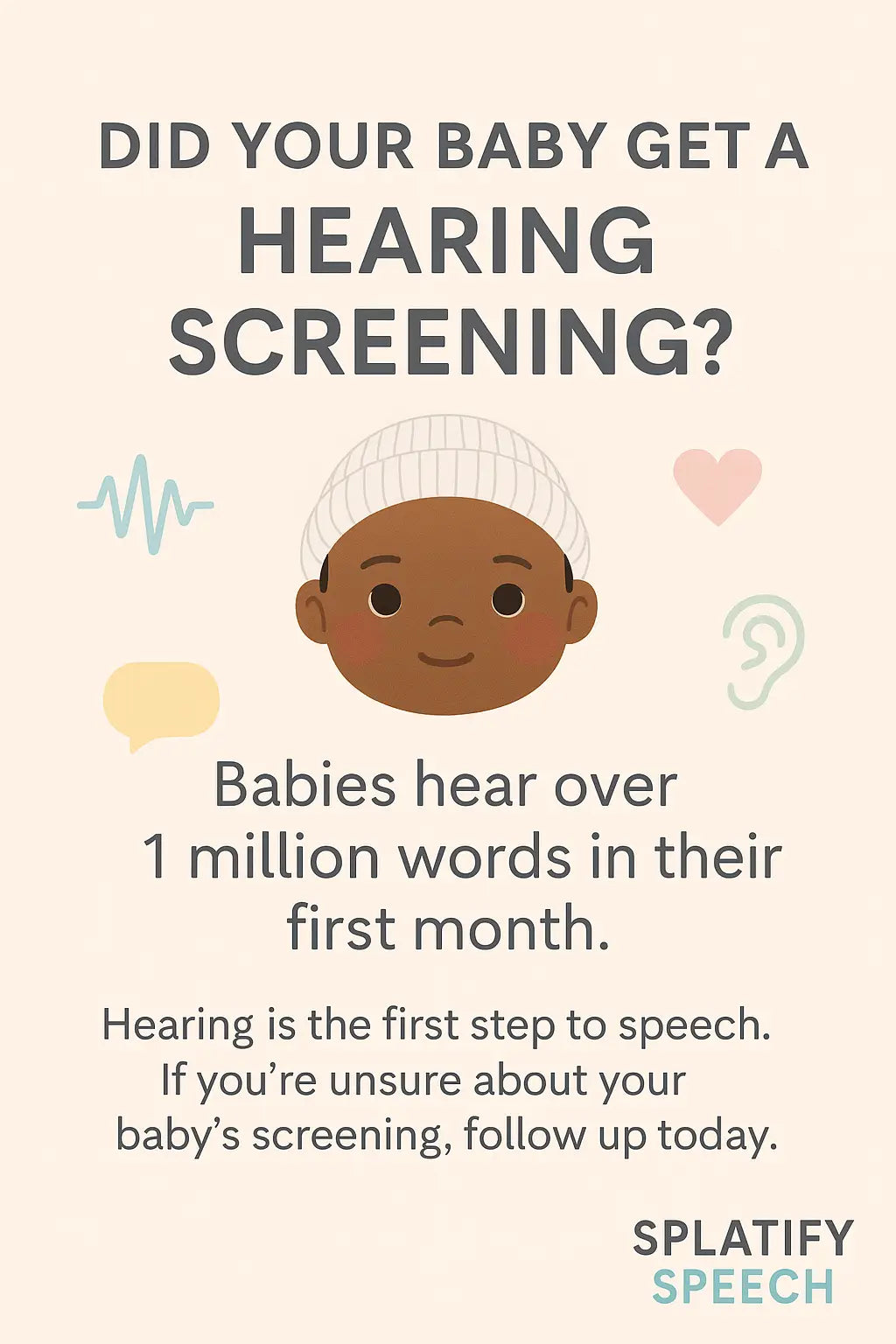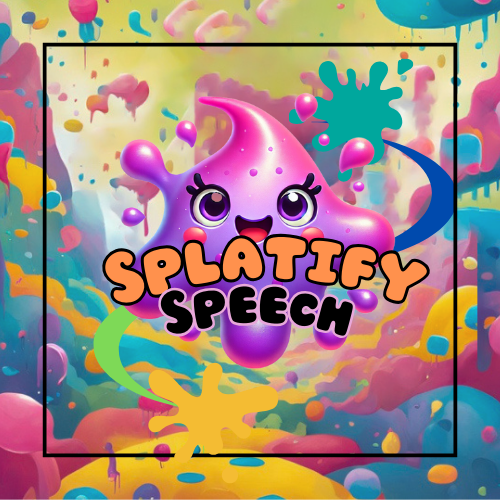
Did Your Baby Get a Newborn Hearing Screening? Here’s Why It Matters for Speech & Language Development
As a parent, you want to give your child the very best start in life—and that begins earlier than most people think. Long before your baby says their first word, they’re listening, watching, and soaking up the sounds of the world around them. In fact, babies hear over a million words in just their first month of life!
But what happens if they’re not hearing clearly? That’s where newborn hearing screenings come in—and they’re more important than many people realize.
Why Hearing Is Essential to Speech and Language Development
Hearing is the foundation of communication. From birth, babies are wired to respond to voices, songs, and environmental sounds. These early listening experiences help shape their brain development, bond with caregivers, and eventually lead to babbling, words, and conversation.
Even a mild hearing issue can affect:
- How your baby learns to imitate sounds
- How they process speech around them
- Their ability to meet speech and language milestones on time
What Is a Newborn Hearing Screening?
A newborn hearing screening is a quick, safe, and painless test—usually done before your baby leaves the hospital. It checks to see if your baby’s inner ear and auditory system are responding as expected.
Most babies pass the screening with no problem. But if your baby didn’t pass—or if you’re not sure whether they even got one—it’s important to follow up right away.
“I’m Not Sure My Baby Had a Hearing Screening… What Do I Do?”
You’re not alone—many parents aren’t 100% sure if their child was screened, especially if things felt like a blur during delivery and discharge.
Here’s what you can do:
- Call your hospital or birthing center and ask for your baby’s hearing screening records.
- Talk to your pediatrician—they can confirm the results or refer you for a follow-up test.
- If your baby didn’t pass the first screening, they’ll likely need a more detailed follow-up test called an ABR (Auditory Brainstem Response) test.
But What If My Baby Didn’t Pass the Screening?
It’s totally normal to feel worried—but try not to panic. Many babies who don’t pass the first screening go on to pass the follow-up. Sometimes it’s due to fluid in the ears, vernix, or even a wiggly baby during testing.
Still, it’s essential to follow through with the next steps. Early detection and support can make a huge difference in your child’s speech, language, and overall development.
Why Early Follow-Up Matters
Hearing issues that go undetected can lead to delays in:
- Babbling and first words
- Social interaction and attention
- Understanding language and following directions
The good news? When identified early, children with hearing differences can thrive with the right supports—including hearing aids, speech therapy, or sign language if needed.
Speech & Language Start With Listening
At Splatify Speech, we know how important it is to catch any hearing concerns early—because speech and language development depends on it.
If you’re ever in doubt, ask.
If you’re worried, follow up.
Your baby’s future voice begins with hearing your voice today.
Next Steps for Parents
- Double-check your baby’s newborn hearing screening records.
- Schedule a follow-up hearing test if needed.
- Keep talking, singing, and engaging with your baby daily!
- Visit SplatifySpeech.com for more parent-friendly tools and speech tips.
